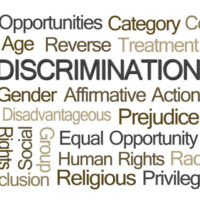Important Updates and Clarifications Concerning Discrimination Based On National Origin

Many people do not realize that, while Title VII has always protected people from job discrimination based on national origin, last November, the Equal Employment Opportunity Commission (EEOC) published enforcement guidance on concerns associated with this specific type of harassment and discrimination. While the guidance serves as a reminder to employers that they cannot discriminate on this basis, perhaps more importantly, it also provides some tips on how the law should be applied.
Title VII’s Protections
Title VII protects us from a variety of types of discrimination; not just based on national origin, but also race, gender, religion, color, etc., and applies to any and all entities with 15 or more employees. When it comes to national origin, its protection essentially extends to ensuring that someone who applies for employment will not be discriminated against simply because of where they come from or their citizenship or immigration status. It usually appears in the form of refusing to hire someone because they originate from a particular country or have a particular type of accent, etc. This rule similarly applies in circumstances where a particular business or entity is serving a client and that client expresses a particular cultural preference; in other words, that entity cannot “honor” that request because it violates Title VII.
What Employers can and cannot do
However, if an employer demonstrates that particular qualities are bona fide occupational requirements, this position can be exempt from Title VII’s protection against discrimination.
In addition, the EEOC also recognizes that certain types of security clearance are necessary for particular jobs, and this can sometimes lead to confusion over where citizenship requirements overlap with applicant/hiring requirements for a particular job position. Thus, an employer can refuse to hire someone simply because they have failed to obtain a required security clearance.
Still, it is important to note that this can never be put forth as designating specific jobs for individuals of a particular national origin; therefore, unless there are very unique restrictions inherently interwoven into a particular job position, employers shouldn’t even ask applicants if they are U.S. citizens. Instead, the proper way to go about staying within the law is to ask if an applicant is eligible, by law, to work for any U.S. employer.
It is permissible for employers to make certain language-based hiring decisions, however: for example, if a restaurant deems that waiters must be able to speak to customers in Spanish because the restaurant serves a particular type of food, for example, or even the assertion that a particular job requires that someone be able to speak English is in accordance with the law if that language ability is tied to the ability to perform the specific job duties effectively.
Florida Employment Discrimination Attorneys
If you or a loved one has experienced any form job-related discrimination—including discrimination based on national origin—we can help. Robert S. Norell has been representing people in employment discrimination actions throughout the greater Fort Lauderdale area for over 25 years. Our attorneys have helped many people obtain justice. Contact us today to find out how we can help.
Resource:
richmond.com/business/learning-center/article_bfe50d21-2284-58db-9eb9-99a209bdf1e3.html


 Robert S. Norell, Esq. became a member of the Florida Bar in 1994 and has represented hundreds of clients in all types of employment law cases for the past 20+ years.
Robert S. Norell, Esq. became a member of the Florida Bar in 1994 and has represented hundreds of clients in all types of employment law cases for the past 20+ years.